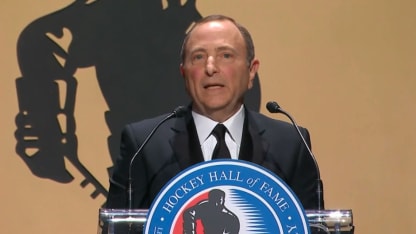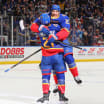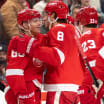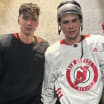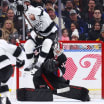MARTIN ST. LOUIS: A wow moment
St. Louis stepped onstage and immediately was thrown off by the magnitude of the moment.
"I might sound like I'm reading, but I'm actually not at all," St. Louis said. "I'm totally going off track, but I'm going to try to bring it back in."
He did, with a few stops to compose himself, especially as he talked about his family.
St. Louis told the story of how he met his wife, Heather, at the University of Vermont. He spoke directly to his three boys, Ryan, Lucas and Mason, all hockey players, and reminded them how lucky they were to have Heather as their mother.
He spoke to his father, Normand, and reminded him of the support he felt from him throughout his playing career. He thanked his sister, Isabelle, for her support, and for being his first goalie.
St. Louis got choked up while he talked about his late mother, France, who died May 8, 2014.
"She was the best woman I ever met," he said. "She convinced me that my heart and will was taller than everyone else."
St. Louis shared special words for John Tortorella, his former coach with the Tampa Bay Lightning, saying he went further because Tortorella pushed him to do so. He specifically thanked his three main centers in Tampa Bay, Brad Richards, Vincent Lecavalier and Steven Stamkos, who was among the seven current Lightning players standing stage right after traveling from Buffalo to support St. Louis.
"I'm here a lot because of those guys," he said.
St. Louis closed with a word advice for kids, telling them to follow their dreams and to always keep pushing to break down the barriers others have thrown up in front of them.
And, finally.
"Mom, this one is for you," he said.
